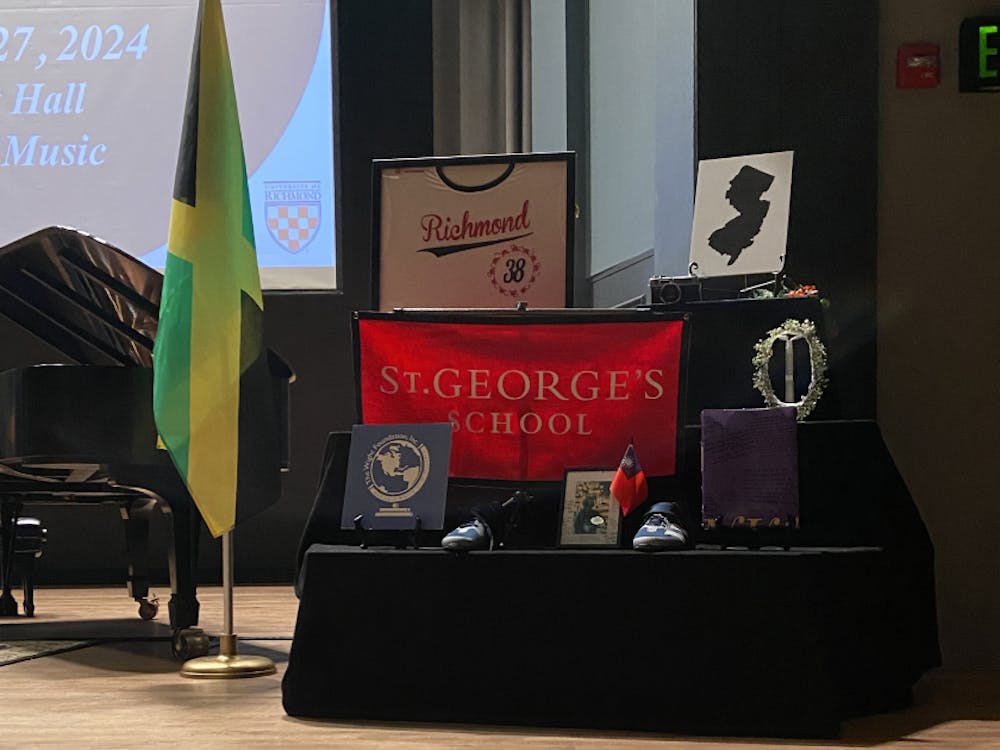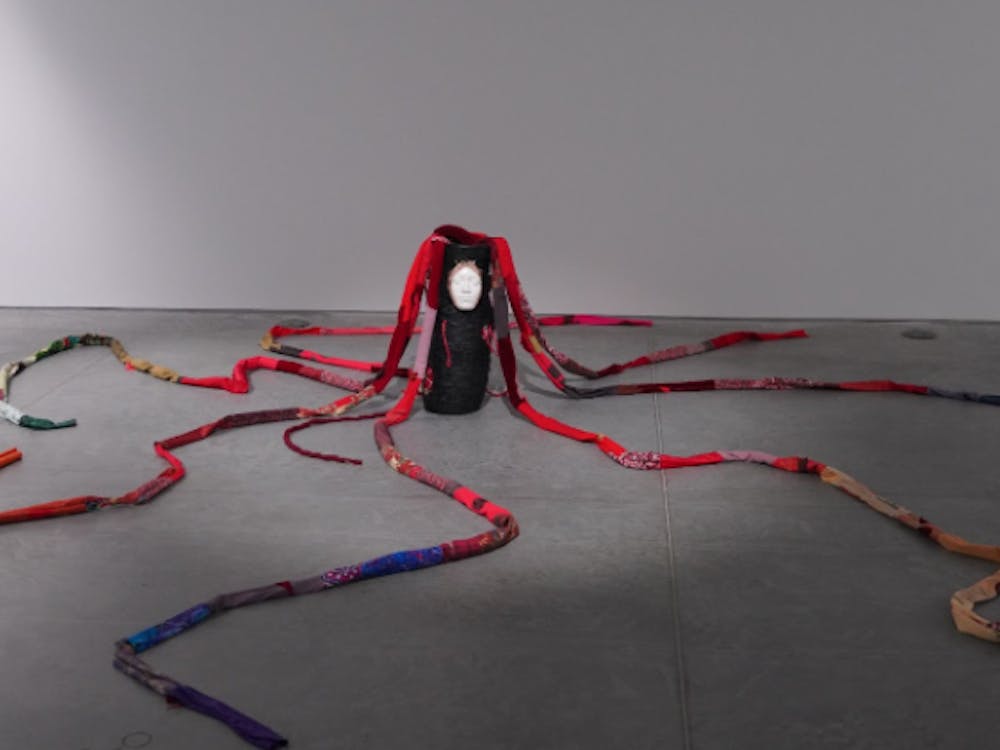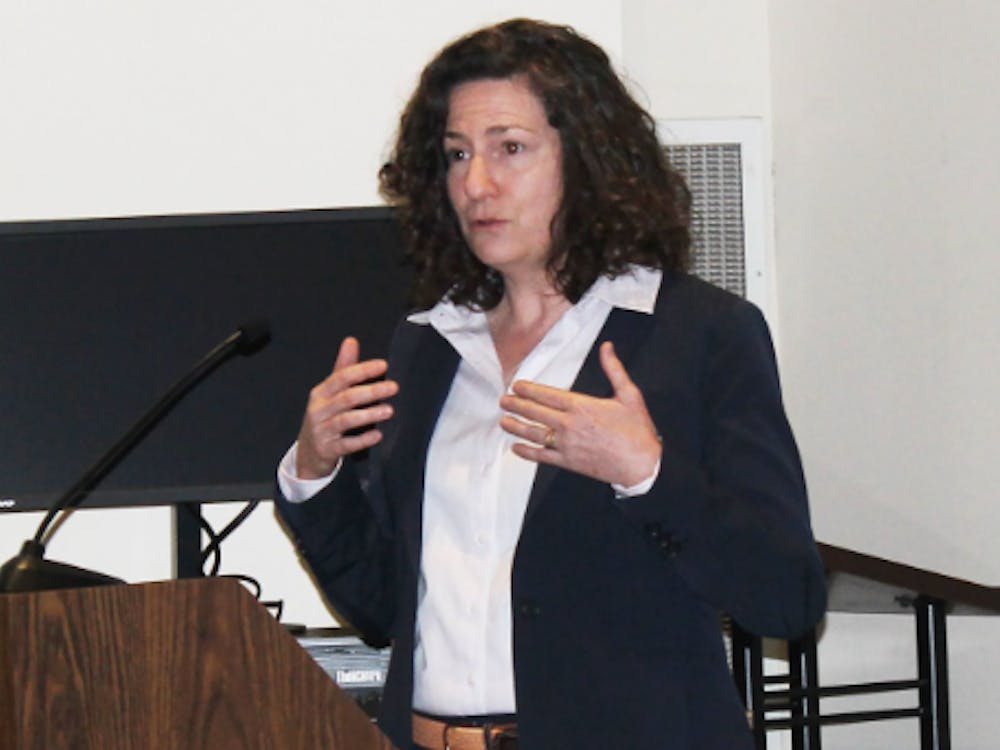When Sarah Woodis unpacked her belongings in her room in North Court in January, images of the hills of Galway came to mind, she said.
Woodis, like many University of Richmond junior-year students who study abroad, did not expect her return to campus to be difficult. After a semester or two abroad, many students are anxious to see their friends and grab dinner at the Heilman Dining Center, but as soon as they are back on campus, they cannot escape thoughts of Ireland, Spain, Italy, France and China.
Junior Melissa Mitchell said she had found it difficult to manage her work. While Mitchell did study during her five-month semester abroad, she said the Argentinean lifestyle had not pressured her to work as hard as she did at Richmond.
"It's difficult when all you want to do is socialize with the people you've been away from for the past semester when you are stuck in Boatwright Library every night of the week," Mitchell said.
Many students have as difficult an adjustment returning from abroad as they do when they leave, said Michele Cox, director of study abroad. Cox said that it was common for students, like Mitchell, to miss the excitement of a foreign culture and struggle to keep up with Richmond's academic expectations.
Another major adjustment is the drinking age. In Galway, for instance, Woodis drank legally as a 20-year-old at authentic Irish pubs. Not here.
"Coming back to America where certain things, like the drinking age, are different really opens my eyes to how I completely adapted to a different lifestyle in Galway," Woodis said.
Peter LeViness, director of Richmond's Counseling and Psychological Services, said it was normal for students to have both psychological and logistical problems on their return. The personal development with which students return leaves many depressed because they miss the freedom they had abroad. Additionally, many students have grown apart from their friends and do not know whom to call to make plans or where to go to socialize.
The Study Abroad office has a re-entry program that works with students to cope with these issues. Richmond officials strongly encourage students to attend this program despite past poor attendance because many of the international programs do not warn their students about the "reverse-cultural adjustment," Cox said.
Cox recommended that students talk with their friends, befriend international students or even help with study abroad orientation. Similarly, LeViness suggested that students keep a journal to log their feelings. If a student struggles with these problems for more than a few weeks, has trouble sleeping or feels emotionally drained, he or she should seek help at CAPS, LeViness said.
It has been nearly three months since Woodis and Mitchell have returned from their semesters abroad, and both still struggle to adapt to the lifestyle at Richmond. They recognize that everyone handles these problems individually, and at the end of the day, there is no option.
"You're forced in," Woodis said. "You have work to do and you just do what is expected of you."
Enjoy what you're reading?
Signup for our newsletter
Woodis and Mitchell admitted many friendships had changed and their views of Richmond may have shifted as well. But, after they lived the Irish and Argentinean way of life, they learned to confidently use public transportation systems, befriend foreigners, manage their money, communicate with people who do not speak English and, more than anything, they learned independence.
"Without the experience [of studying abroad] it's hard to see your own culture in a different lens. The personal growth from this experience is tremendous," Woodis said.
Some students even return to the country they studied abroad in to do volunteer work, Cox said.
Many students who still have these problems agreed with Cox.
"Studying abroad is the best experience that anyone our age can do," Mitchell said. "It's hard to come back because you grow up so much and learn so much. But that's what maturity is all about."
Contact reporter Dryden Witman at dryden.witman@richmond.edu
Support independent student media
You can make a tax-deductible donation by clicking the button below, which takes you to our secure PayPal account. The page is set up to receive contributions in whatever amount you designate. We look forward to using the money we raise to further our mission of providing honest and accurate information to students, faculty, staff, alumni and others in the general public.
Donate Now


